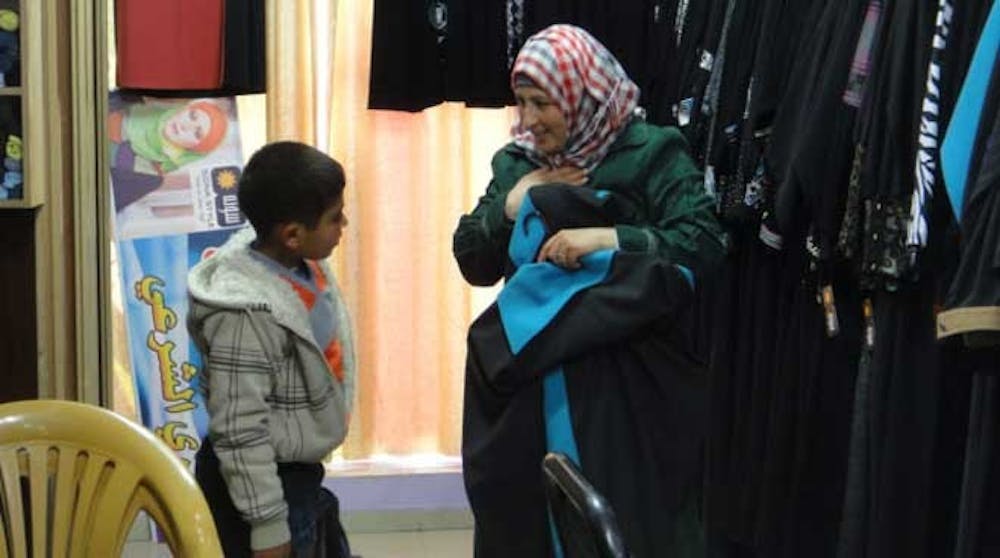Recently, Barack Obama and Benjamin Netanyahu met to discuss a peace process between Israel and Palestine. From the perspectives of most leaders involved in the negotiations, "peace" should take the form of a two-state solution.
Other voices in the discussion want to see this "peace" take the form of a one-state solution, either as a land that is solely Israel, or as a land that is entirely Palestine.
However, after living for two months in Jenin, Palestine, it is clear to me that for most locals, the idea of peace is far less political. I am currently living in Jenin in order to implement a project through my organization, A Global Voice for Autism. For the families of children with autism that my team and I are working with, the peace that they desire most will come from within their community and will start within their homes.
When autism is diagnosed in a child in Jenin, the diagnosis often results in conflict within the family and in the community. Autism is a neurological disorder that is characterized by difficulties in behavior, communication and social interaction. Although the exact cause of autism has not yet been determined, scientists know that the disability is a result of a combination of genetic and environmental factors. However, in Jenin, autism is still commonly thought to be the result of bad parenting. There is a children's television channel here that plays the same song all day with different lyrics and autism is often blamed on a child's exposure to this channel. At every lecture that my team and I have given to parents and community members, we have been asked whether this television channel causes autism.
The parents say that this stigma often keeps them from sharing their child's autism diagnosis with extended family and with other community members. One mother in our program, Aseel, says that although she now knows that her child's autism is not her fault, her neighbors do not understand this. Some mothers fear this judgment even within their families and have difficulty taking their child to other family members' homes due to disruptive behaviors.
Additionally, the lack of schools and services for children with autism in the Jenin community means that many of these children are kept in their homes, without access to an education that would allow them to reach their full potential.
A Global Voice for Autism strives to bring peace to families of children with autism by teaching mothers to work with their children on communication, behavior and social skills using an evidence-based approach known as applied behavior analysis.
By teaching mothers the skills to work with their children, they are able to take their child's autism treatment into their own hands and to feel some control over their own lives that was previously lacking.
As awareness spreads, community members are becoming motivated to incorporate individuals with autism into their society. At our recent lecture, kindergarten teachers asked about how they could integrate children with autism into their classrooms while teaching them the skills that they need to be successful. When we take mothers and their children on community outings, we explain to the shopkeepers that we are working with a child with autism and we explain what this means. All of the shopkeepers we have encountered have been welcoming. Some even give gifts to the children and invite their mothers to come back to their stores.
Before starting our program, many of the children we work with would scream and break things in order to get across what they were unable to communicate in words. Although the children who were non-verbal at the beginning of the program have not developed language, they are learning to point to request what they want and their mothers say that this has reduced their screaming behavior.
There are still many people in Jenin who do not know about autism, but the mothers say that connecting with other parents of children with autism has helped them to feel more comfortable in their community. Mothers of children with autism in Jenin now have a gathering place where they can come together and know that they are not alone in their experiences. As they get to know one another, they are learning from each other's experiences and are able to apply this knowledge when working with their own child.
I do not have a solution to the Israeli-Palestinian conflict, but I do have one insight. A stable peace in the region will not start with the signatures of politicians and redrawn lines on a map and it will not end there either.
Enjoy what you're reading?
Signup for our newsletter
Peace starts with relationships, with understanding that even with our differences, all humans have more in common with one another than differences that keep them apart. We all have something to learn from every individual we meet. For this reason it is not in spite of these differences that valuable relationships are developed, but because of them.
The mothers in our program are learning this about their children with autism as well. They may never fully understand their child's behaviors, but by working together to help their children learn to the best of their abilities, they can create a community where their child can succeed and they can bring peace to their relationships with one another and into their homes.
Contact reporter Melissa Diamond at melissa.diamond@richmond.edu
Support independent student media
You can make a tax-deductible donation by clicking the button below, which takes you to our secure PayPal account. The page is set up to receive contributions in whatever amount you designate. We look forward to using the money we raise to further our mission of providing honest and accurate information to students, faculty, staff, alumni and others in the general public.
Donate Now


